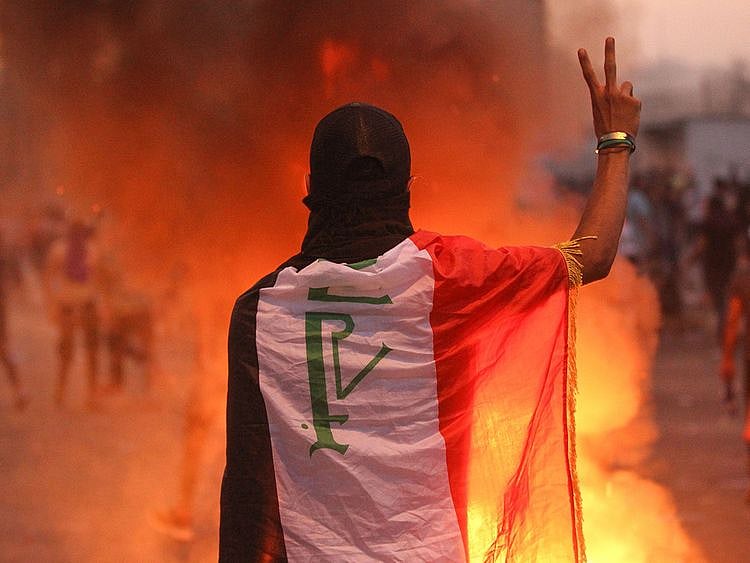Iraqi protesters: Sadr doesn’t represent us
Protesters fear their call for government overhaul will be eclipsed by Sadr’s powerplay

Baghdad: Supporters of volatile Iraqi cleric Moqtada Sadr prepared on Friday for a “million-strong” march in Baghdad to demand the ouster of US troops, putting the protest-hit capital on edge.
The march has rattled the separate, months-old protest movement that has rocked the capital and Shiite-majority south, where young Iraqis have demanded a government overhaul, early parliamentary elections and more accountability.
After defying violence that has left 470 people dead as well as a spree of kidnappings and intimidations, those protesters fear their cause could be eclipsed by Sadr’s powerplay.
“Sadr doesn’t represent us,” one teenager said defiantly late Thursday on a blocked-off thoroughfare in Baghdad.
America’s military presence in Iraq has become a hot-button issue in the country since a US drone strike killed Iranian general Qasem Soleimani and Iraqi commander Abu Mahdi al-Muhandis on January 3 outside Baghdad’s international airport.
Two days later, parliament voted for all foreign troops - including some 5,200 US forces - to leave their country.
Sadr, long opposed to US troops being in Iraq, decided to take that momentum to the street and called for “a million-strong, peaceful, unified demonstration to condemn the American presence and its violations”.
Several pro-Iran factions from the Hashed al-Shaabi military force, usually rivals of Sadr, have backed his call and pledged to take part on Friday.
By late Thursday afternoon, new checkpoints cropped up across Baghdad aimed at securing the protest area.
In the shrine city of Karbala, south of Baghdad, large buses were seen picking up Sadr supporters to bring them to the capital for the rally.
To head off the anti-US gathering and ramp up pressure on authorities to enact reforms, young anti-government demonstrators shut down streets in Baghdad and across the south this week with burning tyres and metal barricades.
Protester Mariam said Friday’s rally would be “politicised by certain factions or sides”.
“We’re protesting in the people’s name. We’re free. We can’t demonstrate in the name of a particular party or sect,” she said.
Sadr's 'multiple identities'
Harith Hasan, an expert at the Carnegie Middle East Center, told AFP Sadr was trying to sustain his “multiple identities” by backing various protests.
“On the one hand, (he seeks to) position himself as the leader of a reform movement, as a populist, as anti-establishment,” Hasan said.
“On the other hand, he also wants to sustain his image as the leader of the resistance to the ‘American occupation’,” partly to win favour with Iran, he added.
Tehran has insisted all American troops must leave the Middle East amid the skyrocketing tensions with Washington over recent weeks.
But Sadr may also have domestic motivations, Hasan said.
“This protest will show Sadr is still the one able to mobilise large groups of people in the streets - but it’s also possible he wants other groups to respond by giving him more space to choose the prime minister.”
Premier Adel Abdel Mahdi resigned in December under pressure from protests and Iraq’s Shiite religious authority, but he remains caretaker prime minister, as political parties have failed to name a successor.
Sign up for the Daily Briefing
Get the latest news and updates straight to your inbox
Network Links
GN StoreDownload our app
© Al Nisr Publishing LLC 2026. All rights reserved.